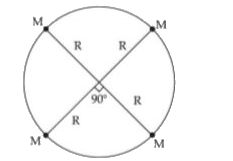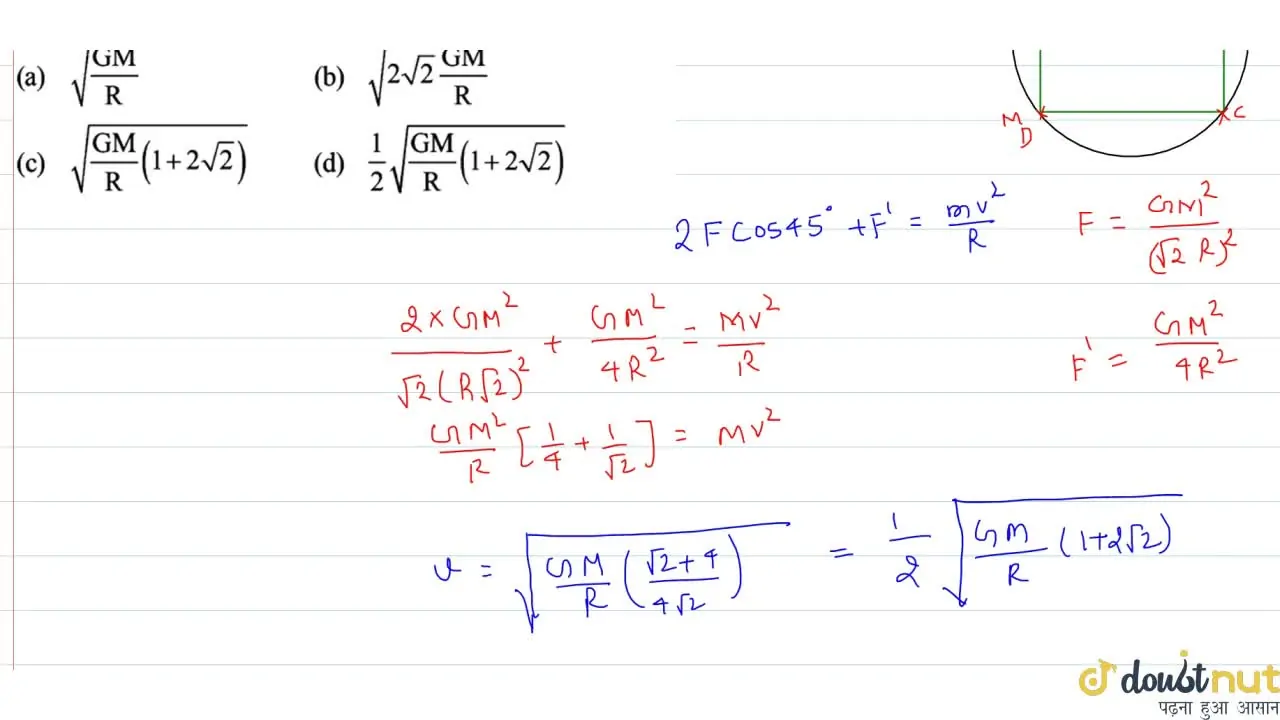Four particles, each of mass M and equidistant from each other, move along a circle of radius R under the action of their mutual gravitational attraction. The speed of each particle is:
sqrt((GM)/(R ) (1+2sqrt2))
The correct Answer is:D
(d) 2F cos 45^@ + F' +(Mv^2)/(R ) where F = (GM^2)/(sqrt2R^2 ) and F'= (GM^2)/(4R^2)rArr (2xxGM^2)/(sqrt2(Rsqrt2)^2) + (GM^2)/(4R^2) = (Mv^2)/(R )rArr (GM^2)/(R ) [(1)/(4) + (1)sqrt2)] =Mv^2:. v = sqrt((Gm)/(R )((sqrt2+4)/(4sqrt2))) = (1)/(2) sqrt((Gm)/(R ) (1+2sqrt2))
Related Playlists
Similar Questions
Two particles each of mass M and equidistant from each other move along a circle of radius R under the action of their mutual gravitional attraction the speed of each particle is
View SolutionFour particles each of mass M move along a circle of radius R under the action of their mutula gravitational attraction the speed of each paritcles is
View SolutionFour particles each of mass M move along a circle of radius R under the action of their mutula gravitational attraction the speed of each paritcles is
View SolutionTwo particles of same mass m go around a circle of radius R under the action of their mutual gravitational attraction. The speed of each particle is ,
View SolutionTwo particles of equal mass go around a circle of radius R under the action of their mutual gravitational attraction. The speed v of earth particle is
View SolutionFour particles each of mass M, move along a circle of radius R under the action of their mutual gravitational attraction as shown in figure. The speed of each particle is :
 View Solution
View SolutionFor particles of equal massses M move along a circle of radius R under th action of their mutual gravitational attraction. Find the speed of each particle.
View SolutionTwo particles of equal mass m go around a circle of radius R under the action the of their mutual gravitational attraction . The speed v of each particle is
View SolutionTwo particles of equal mass go round a circle of radius R under the action of their mutual gravitational attraction. Find the speed of each particle.
View Solution_S01_003_Q01.png)
Two particles of equal mass (m) each move in a circle of radius (r) under the action of their mutual gravitational attraction find the speed of each particle.View Solution


